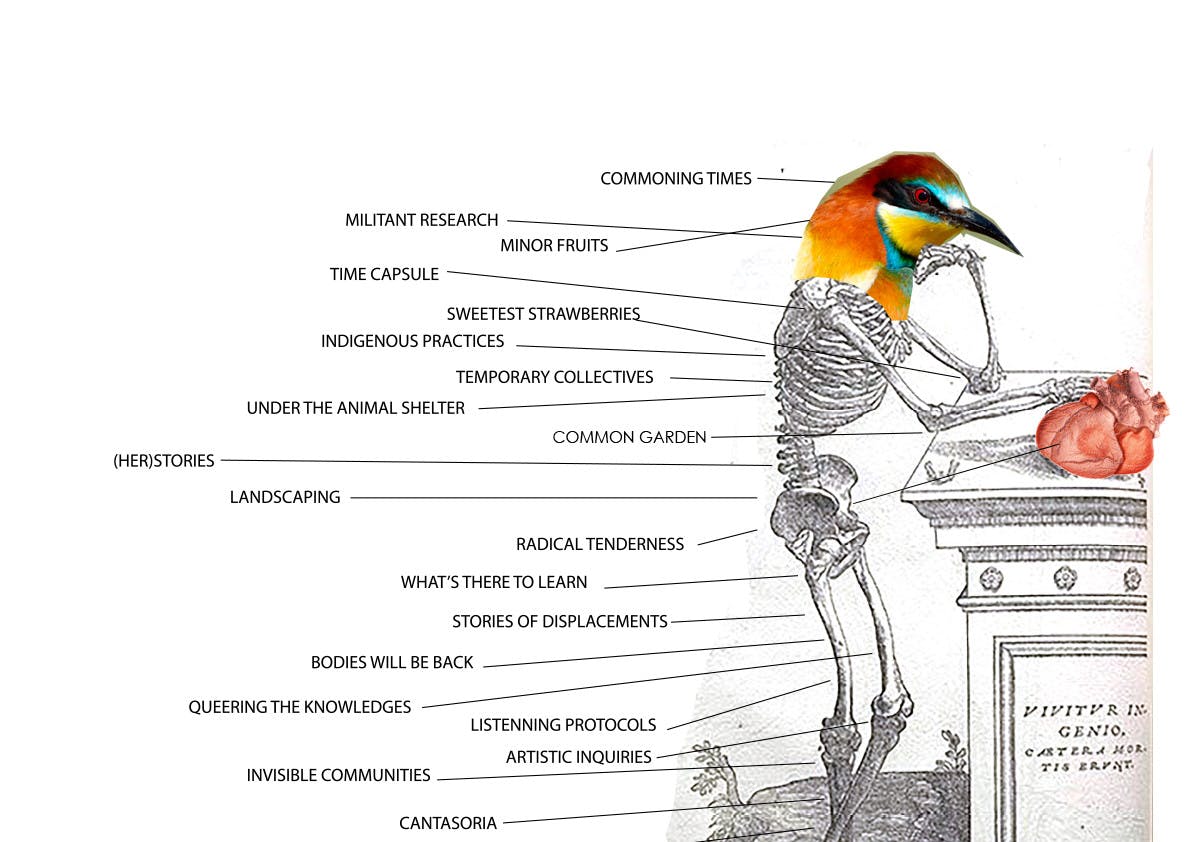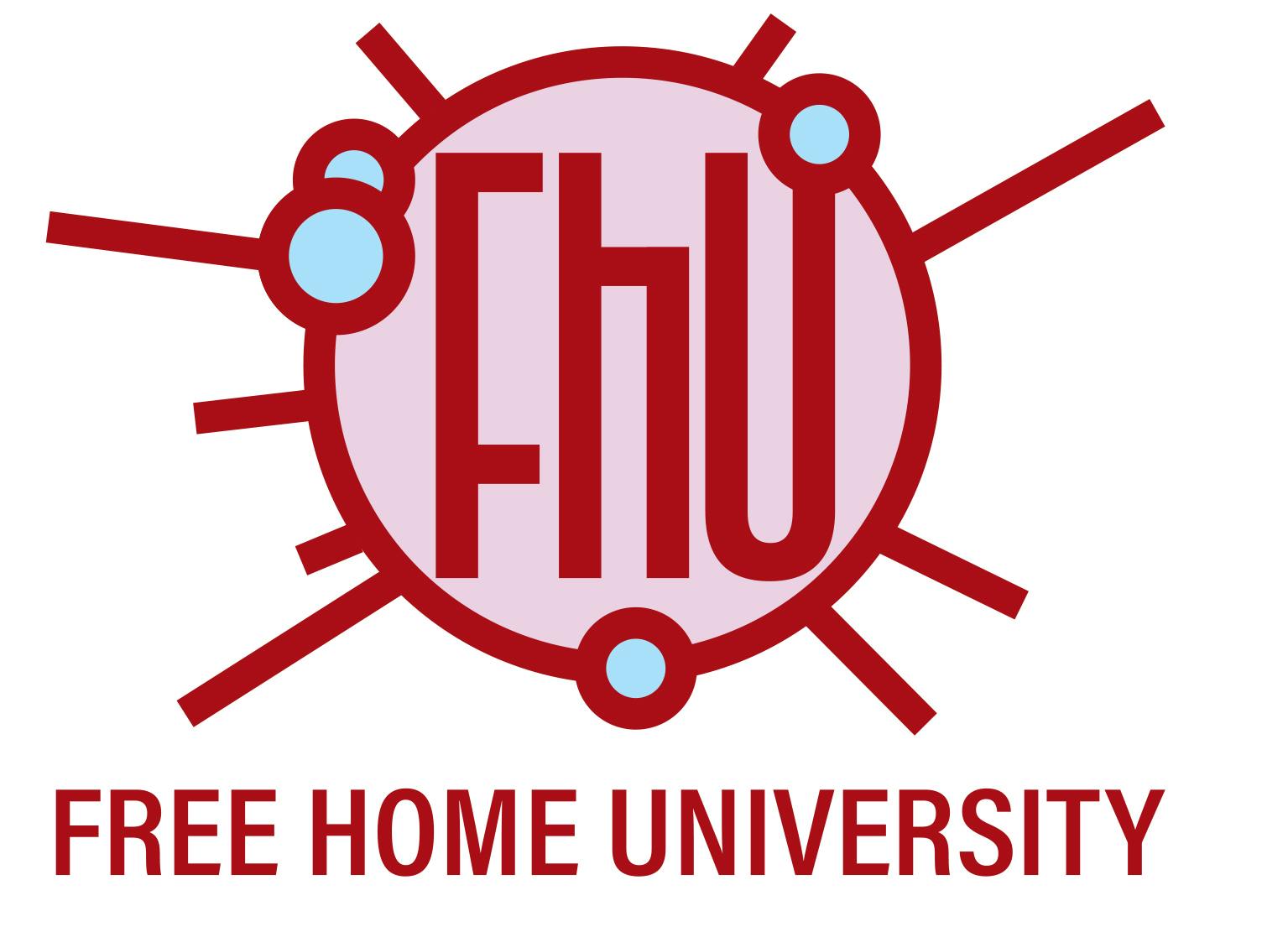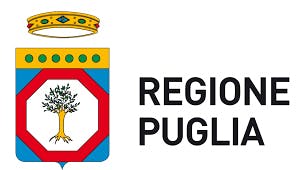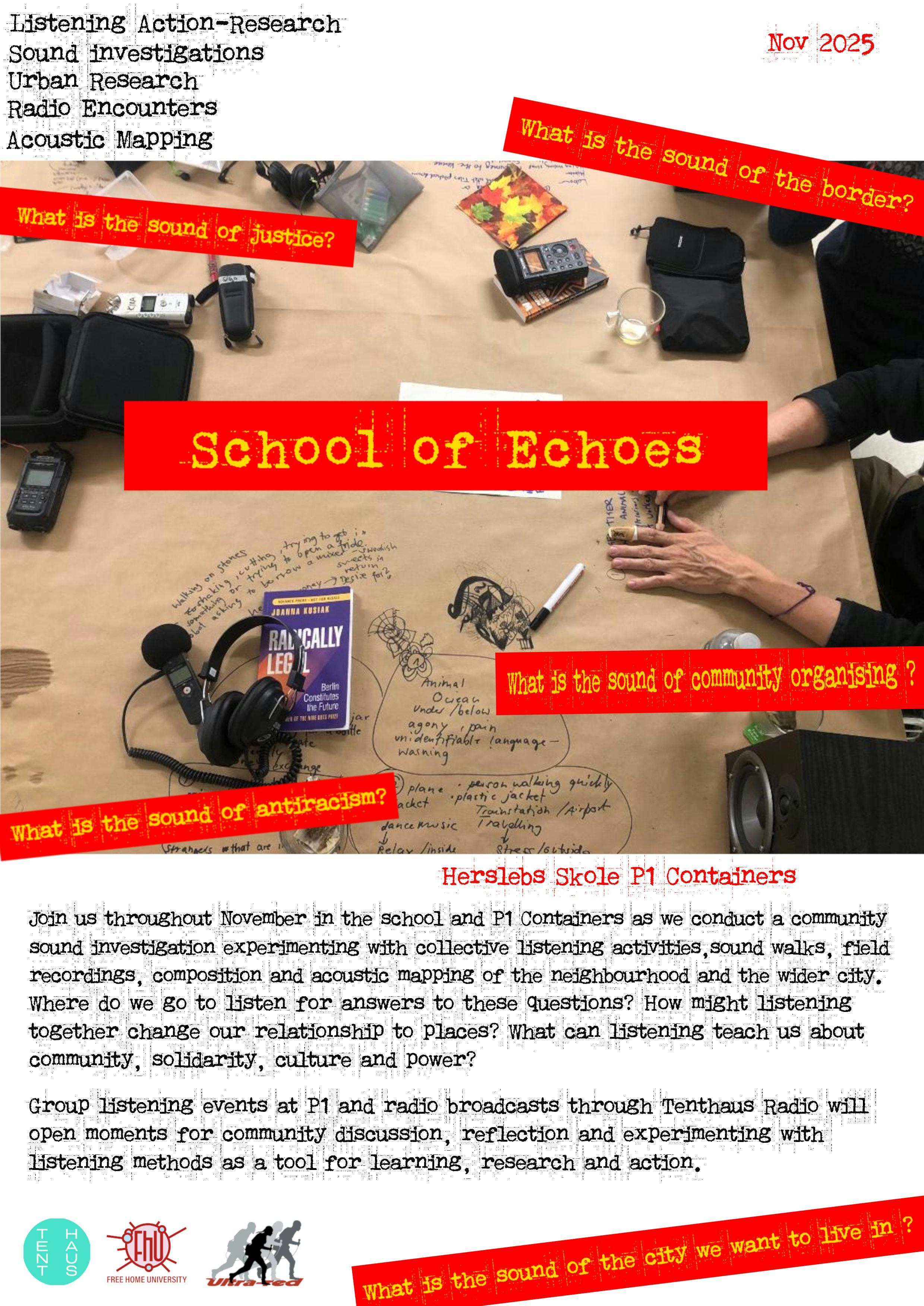Landscaping+Animalia Mundi
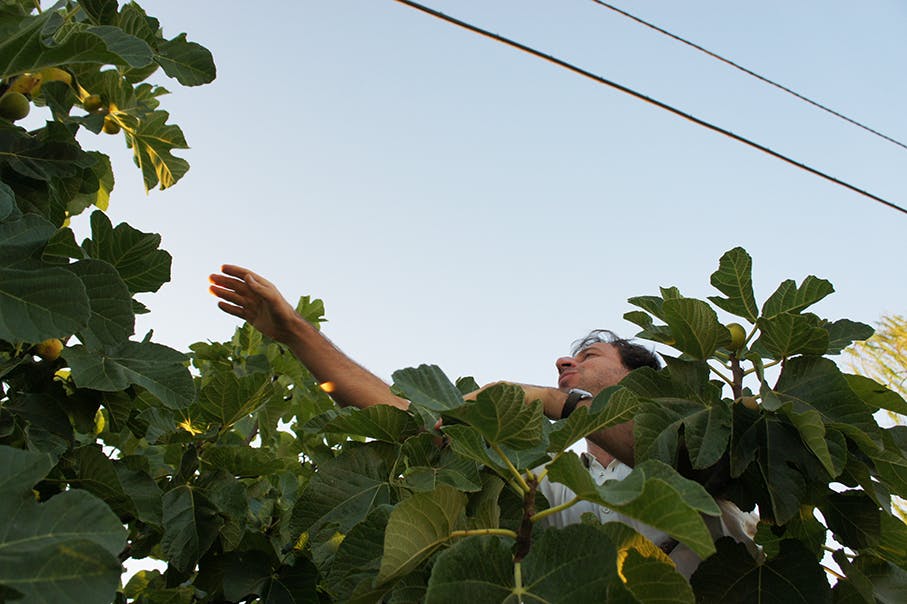
- Fernando García-Dory
- Sergio Montero Bravo
- Amy Franceschini
- Emilio Fantin
- Luigi Coppola
- Carla Rangel
- Benjamin Blachon
- Talia Molé
- Raphael Daibert
- Nayarí Castillo
- Gerardo López Amaro
- Nikolay Oleynikov
- Alessandra Pomarico
The 2017 summer session of Free Home University was organized as a collaboration with farmers and community organizers of Casa delle Agriculture from Castiglione and INLAND art collective (Spain), focusing on the preparation of the LANDSCAPING: learning from the <land>, studying the <scapes>, enlivening <agroecologies>.
The immersive two weeks research-in-action intended to study the interconnectedness of all living organism and guide the insertion of the animal element in Castiglione’s cultivation system which was at first considered viable in the summer, and then postponed to a later moment after the community had had a chance to learn and understand how to properly manage a flock of sheep and other animals like hens and donkeys; how to build a barn that could also host didactic activities for school children; how to identify the lands in which they would ruminate; and how the animals could be considered as “commons” and benefit the all community.
INLAND extended its Art & Agroecology methodology to reflect on and reinforce the cultural strategy already in place in Castiglione, thanks to the ongoing work of Casa delle Agriculture which, at its turn, shared the experience, and the synergetic actions and knowledge developed locally. This joint effort was the first step to establish the Scuola delle Agriculture, in collaboration with Free Home University and the INLAND School of Shepherds.
The session overlapped with the Notte Verde, 4-day event around organic agriculture and related questions that CdA organizes since six years. This was conceived to give to our international fellows an opportunity to witness, participate and learn from the way the local community is self-organizing, presenting to the audience the result of their year-long efforts and initiatives, inviting everyone in the discussion of issues and struggles related to agriculture, rural economies, landscape, waste and recycling, health, food, ecologies, sustainability, mutual aid alternatives, migrants’ labour and the so called ‘refugee crises,’ corruption and power forces (the key note talk was about how the mafia permeates and control the intensive agriculture system and how farmers can defend themselves).
An interesting and dense program of a series of practical workshops (cheese making, pizza and bread making, weaving baskets, self-made tools etc) and more theoretical conversations took place both at the former elementary school (rescued to become FHU headquarter, a common kitchen and future Scuola delle Agriculture) and the main square, with an attentive audience that grew larger every night to the tip point of 10.000 estimated visitors of the peak of the event on the the 31st. Each night was always concluded with convivial moments, food and performances. Fernando Garcia Dory contributed to the night dedicated to pastoralism sharing about the important role that animals play in the agroecology perspective, also as a way to prevent wild fires, and to reinvigorate the olive orchards environment against the bacteria of xylella (two main plagues in our territory).
Through different tools and methodologies, the group had the chance to observe, feel, embody, draw, film, and narrate the landscape, its history and economy, combining the study of the physical environment (geology, climate, flora & fauna), the social, political, and economical local context, and the land tenure systems in place.
The design of the common space was provided by ConstructLab (Benjamin Blachon/ Carla Rangel) with local and international artists, designers, farmers, cooks, scholars, architects, activists, agroecologists, performers, and filmmakers sharing skills, ideas and tools.
The local community hosted dinners, took us to places, shared time and knowledge, discussed and conversed and worked on our side as well as integrated us in their work.
The research was (sort of) organized in two phases:
—phase 1—
LANDSCAPING
—a field investigation on the landscape through an agro-ecological lens, senses and bodily-based explorations and the recollection of land related stories. Drawing, visualizing, walking, visiting local organic farmers, shepherds and land protectors, creating a common vocabulary were some of the practices leading to the formation of a new cartography (or its premises).
We collected data and poetic observations in a fanzine, we recorded material for a possible online radio station, we transformed an abandoned former elementary school into a social space, a site of learning and living (4 of us inhabited the school) where we built a very well used common kitchen. These were some of the material outcomes of this phase.
—phase 2—
ANIMALIA MUNDI
—a series of actions to prepare the inclusion of the animal husbandry component in the Castiglione agricultural regeneration plan. The reflection on the <human\non-human animal relation>, as paradigm of some of the troubled culture-nature current question, aimed to go from philosophical notions and poetry to practical land planning and stable design.
This inquiry prepared the path to establish a Common Flock Bank in Castiglione. The next step of Scuola/ Casa delle Agriculture, Free Home University and INLAND will be to build the animal shelter with local material, agriculture waste and an eco-design approach.
